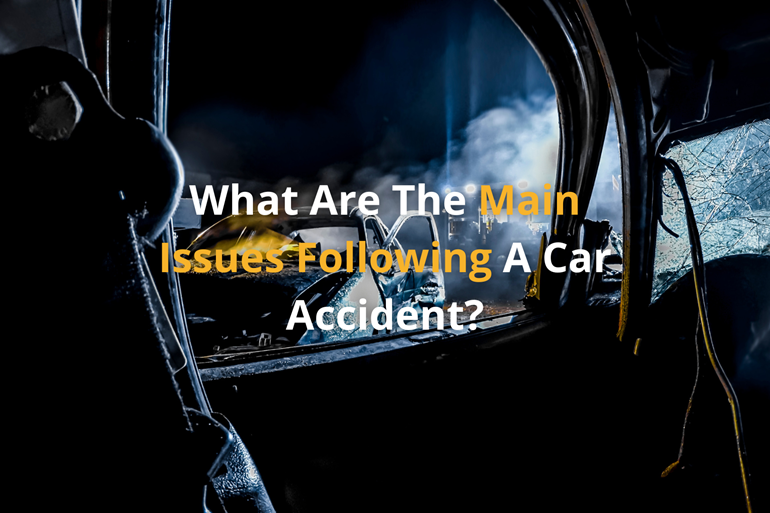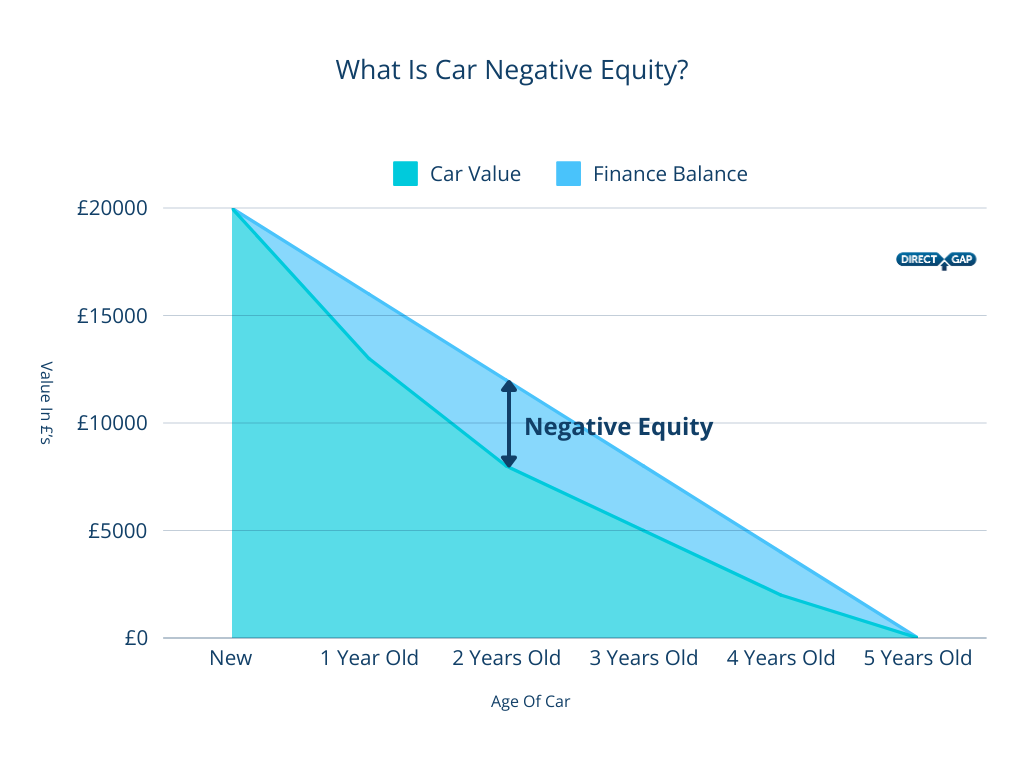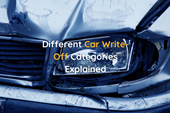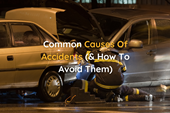
What Are The Main Issues Following A Car Accident?
Accidents Happen, But What Are The Consequences?
Unfortunately, even the safest drivers can have bad luck. Aside from the obvious risk of getting hurt, what are the other consequences of being involved in an accident?
There are more downsides and long-lasting effects of a car accident than people realise; which we’re looking at in our latest article. First, let’s take a look at some of the basics.
What To Do If You’re Involved In An Accident?
It’s a legal requirement to stop at the scene of an accident as soon as safely possible to do so. If you don’t you run the risk of a fine, penalty points, a prison sentence or disqualification.
Here are the steps you should take (as advised by the Police) if you are involved in an accident:
- Stop at the scene as soon as you can do so safely.
- Turn off your engine to prevent further damage and reduce risk.
- Turn on your hazard lights to notify other drivers of a collision.
- Check yourself, passengers and other drivers for injuries (if there are any, call the ambulance service immediately).
- Exchange details with the other driver(s) including name, address and car registration number. Ideally, you can exchange your insurance details; if you have them.
Do You Need To Call The Police Following An Accident?
In most cases, you don’t need to call 101 or 999 and involve the police. However, there are some circumstances where you may have to.
- When To Call 101: You should call 101 if the other person (or persons) involved in the car accident fails to give you details or leaves the scene. Making a note of their car registration will help the police with this issue and should speed up the claiming process.
- When To Call 999: In some cases, tempers can flare. Call the police on 999 if you feel an imminent threat or danger. Furthermore, you should call the police if you think a more serious offence has occurred such as drunk driving.
You should also call 999 if the car accident location could cause further issues, such as blocking lanes on a motorway.
Want more information? Check out James Cartwright's blog; What Should You Do If You're Involved In A Car Accident?
What Are The Main Issues Following A Car Accident?
Increased Premiums
Whether you’re involved in a major collision or minor bump an accident will almost certainly mean increased insurance premiums when you renew.
Insurance companies calculate many ‘risk factors’ to determine premiums, which recent accident history can negatively impact, regardless of who was at fault, with bigger increases for more severe accidents. Insurers will also look at previous history, such as the frequency of any prior accidents.
Higher premiums and increased insurance costs can feel like extra ‘punishment’ for being involved in an accident, especially if you weren’t at fault. What’s more, increased insurance costs can compound an already stressful situation if you have to cover major repair costs.
Losing Your No Claims Bonus
A No Claims Bonus (NCB) can be built up through your insurance provider if you go year on year without making a claim; effectively ‘rewarding’ careful drivers. If you have built up a no-claims bonus for several years the discount you experience could be significant.
If you’re involved in an accident, especially where you’re at fault, or the other driver was uninsured, you risk losing your bonus.
If you have a sizeable No Claims Bonus accrued you should consider an insurance provider who offers a ‘Protected No Claims Bonus’ This can maintain your bonus following an accident or if you’re hit by an uninsured driver.
Negative Equity

Negative equity: When the amount you owe on your car finance or car loan is higher than the value of the car.
Negative equity occurs when the value of your car has depreciated more rapidly than the amount you owe on finance, meaning you owe more than the car is worth.
Following an accident, even if repaired professionally, your car may suffer an increased depreciation rate, meaning more risk of negative equity. Worse still, if yours has already depreciated (which is inevitable in all but the rarest cars) and the accident renders your vehicle a ‘total loss’ you could face severe financial implications.
A ‘total loss’ (or ‘write off’ as they’re often known) means your car isn’t salvageable (usually as repair costs are too expensive for your insurance company to justify). At this point your insurer will offer you a final settlement figure; usually the value of your car at the time, not the amount you may still owe.
This could mean that, following your accident, you are left paying finance for a car you can’t afford to replace.
Gap insurance, including gap insurance for lease cars, can help minimise your risk by paying the difference between your insurer's settlement figure and the outstanding finance balance (depending on the policy you choose).
Less Confidence On The Road
Being involved in a car accident can have a lasting impact on your driving confidence, often leaving you feeling more anxious or overly cautious behind the wheel; in rare cases, this can mean stopping driving altogether.
Good driving requires a certain level of confidence to make quick decisions and be comfortable driving on busy or stressful roads, which could leave you after an accident. If this becomes too much of an issue, you could find yourself avoiding certain roads and driving situations or avoiding driving altogether.
Our Final Word
No one wants to be involved in an accident. At worst, they can cause major injury, heartache and ongoing problems for even the most careful drivers. At best they’re inconvenient and can cause major headaches with insurance, repairs and much more.
We’re all aware of the main issues a car accident can cause, but the smaller, often overlooked issues can be just as severe; whether that’s a loss of driving confidence or ongoing costs from negative equity.
Hopefully, by being aware of the issues that could arise, you’ll be more prepared, should the worst happen.
We hope you’ve enjoyed reading this article. If you have, please share it with your friends and help support Direct Gap. If you have any questions, please get in touch with Luke! Drop him a message via social media and he’ll be happy to help.









